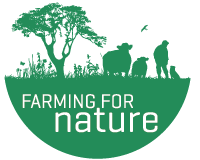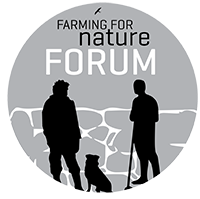Agricultural Science Leaving Cert Teachers
The below are a few different resources that fit in with your programme over the two years.
Soil Animation
Why Soil Matters – and how to improve it is a short animation on why good healthy soil is important to all of us and how livestock or arable farmers can improve it on the land for the benefit of their land, their community and the planet. This video is relevant to understanding all the underpins sustainable agriculture and fertile land.
Once you have watched it with your class you can use the following:
Answers sheet – Why Soil Matters
Key Words for further discussion
Transition Year Teachers
The below are a few different ways you can engage your pupils with nature and farming. These can fit under Environmental studies, Food Matters, Biology, Geography, Agricultural Science, Home Economics and more.
The Healthy Food Pyramid Leaflet
 ‘A healthy food pyramid relies on a healthy soil foundation’ is a one page leaflet that may be handy to download, print and hand out to your students and create projects around. This can be downloaded here: The Healthy Food Pyramid.
‘A healthy food pyramid relies on a healthy soil foundation’ is a one page leaflet that may be handy to download, print and hand out to your students and create projects around. This can be downloaded here: The Healthy Food Pyramid.
You could put this image up on your whiteboard screen and discuss with the class the following points:
- The importance of eating more types of food from the bottom part of the pyramid than the top. Healthier types of food = healthier children.
- That proportions of food should have more from the lower part of pyramid than the upper part of the pyramid. Bigger proportions of the healthier food = healthier children.
- The healthier the soil where this food comes from = healthier children.
- What does healthy soil look like?
- Why is healthy soil good for nature? Healthy soil = more worms, insects, birds etc.
- Why is healthy soil good for the environment? Captures more water = less drought & erosion.
- Why is healthy soil good for the planet? Captures more carbon which helps fight global warming.
You can download these teachers notes here:
Accompanying Food Pyramid worksheet
Taking action in the classroom:
Do a campaign in the school/community around what is in your lunch box / dinner and how can you improve it to eat more healthier.
Get a knowledgeable parent or local horticulturalist involved in building up a school garden and helping to teach the children to grow on their space.
Plant some bulbs or seeds – maybe your teacher could give out mystery seeds or bulbs and you can wait to see what grows.
Make a compost heap at home or in school.
Start a campaign to get people to stop using pesticides or herbicides in your local community.
Collect seaweed for the school garden or grow green manure.
Start a wildflower area in your school or encourage your school to take part in the no-mow May project.
If you are interested in learning more, why not start with this resource:
WHAT YOU MIGHT SEE ON A FARM THIS MONTH
More educational and training resources below:

